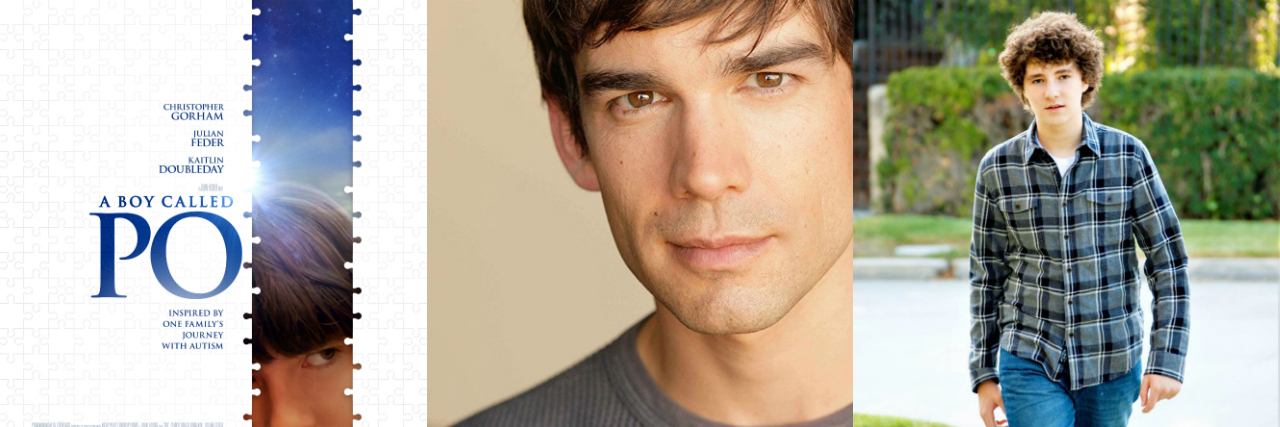What Makes 'A Boy Called Po' so Important for the Autism Acceptance Movement
Every child, every family situation and every parent is different but we can connect to autism through authentic stories like the indie film “A Boy Called Po.” Inspired by one family’s journey with autism, we get a glimpse into the life of Po, an autistic boy, and his father.
In 2016, the film made its debut at several film festivals, winning “Best” Feature Film, Actor and Original Song awards along the way. It’s not surprising because the movie has such heart.
The plotline covers issues we can all relate to — bullying, emotional trauma, the complexity of relationships — and those unique to so many parents of children on the spectrum — lack of insurance, unsympathetic employers, and schools ill-equipped to handle the gifted-but-different child.
So much in the story rings true because so many involved — the writer, director, actors — have loved ones on the autism spectrum.
I asked the film’s lead actors to activate their voices as a part of our #Activate4Autism movement and
share how the film helps to spread the message of acceptance and inclusion:
When you know better, you do better or “Don’t be afraid, daddy.”
Po’s father is not only dealing with the loss of his wife, but now he has to be Po’s primary advocate and nurturer. He’s doing the best he can but he doesn’t always make the right decisions. Throughout the film, Po tells him not to be afraid and we witness his father’s growth when he stops fearing his parenting, life decisions and, ultimately his son.
For those of us who are parents to children on the autism spectrum, we need to remind ourselves of the famous Maya Angelou quote, “I did then what I knew how to do. Now that I know better, I do better.” If we trust our instincts and make decisions out of love, not fear, our children will thrive.
People on the spectrum face playground, stereotype and institutional bullying.
In the film, Po is a victim of a bully at school, an intolerant student who uses every opportunity to verbally and physically harass Po for being different. But what’s more insidious is the stereotypical and institutional bullying Po encounters — from people who call him the R-word to the systems that fail him.
Actor Christopher Gorham (“Ugly Betty,” “Covert Affairs”) plays Po’s dad who fights for the rights of
his son. I asked him to speak out against this kind of bullying for our #Activate4Autism movement. Here’s what he had to say:
Every child has something special to offer.
–> does a brilliant job of playing Po, a boy who has a rich and imaginative inner world when the outside world, including his father, struggle to understand him. I loved these scenes because they reminded me so much of my son lost in his own world, pacing around the room and happily stimming. When I would ask, “Hey buddy, what are you doing?” He’d reply: “I’m just doing my episodes.” I
imagined, like Po, he was going on great adventures with pirates and knights.
Today, my son calls his inner world his “mind palace,” a term he heard BBC’s Sherlock use and connected with. He describes the safety and solace he finds in his mind palace when he’s anxious or needs to escape the noisy, chaotic real world.
Julian grew to have a deeper understanding of autism through his experience as Po. He’s part of a new generation who wants to be more inclusive:
The “system” can’t really handle people outside the “ordinary.”
In one scene, Po’s father (Gorham) says to the school principal: “You mainstream kids but the fact is you can’t really handle kids outside the ordinary… Po is a smart boy. He can run circles around most of these kids. He just does it in his own way.”
The workplace, educational systems and the insurance industry have not caught up with what we know about autism today. They were not set up for anyone outside the norm.
For so many families, these institutions are barriers we must knock down so our loved ones on the spectrum have the same rights as everyone else. Let’s use “A Boy Called Po” as an important resource in our tool kit to advocate for change.
Discover more about #Activate4Autism.
A Boy Called Po is available on demand everywhere including iTunes and Amazon.

